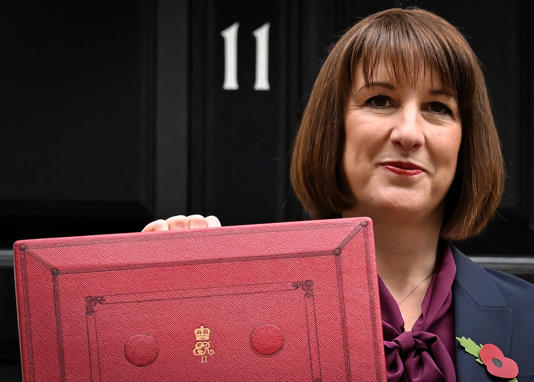
Chancellor Rachel Reeves Unveils 2024 Autumn Budget
In her first Budget speech, Chancellor Rachel Reeves laid out a series of tax increases aimed at addressing the £40 billion deficit in public finances. Despite campaign pledges not to raise income tax, National Insurance, and VAT on individuals, the government is turning to business taxes and investment income to bridge the financial gap.
Here’s what you need to know about the significant changes ahead:
1. National Insurance Increases
- Employer’s National Insurance: From April 2025, employer National Insurance contributions will rise by 1.2 percentage points to 15%.
- Threshold Adjustments: The secondary threshold for employer contributions will decrease from £9,100 to £5,000. To help offset this impact, the Employment Allowance will increase to £10,500, offering some relief to smaller businesses. The £100,000 threshold will also be scrapped, making all employers eligible.
- Expected Impact: These changes are projected to raise £20 billion, though they’ll likely weigh heavily on small and medium-sized enterprises (SMEs) managing rising operational costs.
2. Capital Gains and Inheritance Tax (IHT) Adjustments
- Capital Gains Tax (CGT): The lower rate of CGT is set to rise from 10% to 18%, and the higher rate from 20% to 24%. These changes, effective immediately, increase the burden on those selling assets at a profit.
- Inheritance Tax: IHT reforms will close inheritance loopholes, including taxing inherited pensions from 2025 and adjusting agricultural property relief. Additionally, the IHT nil-rate band freeze will continue until2030.
- Carried Interest: CGT on carried interest will climb to 32% from April 2025, with further changes slated for 2026 to ensure simpler and fairer compliance.
3. Personal Tax Thresholds Unfrozen
- Against prior forecasts, Reeves announced an end to the freeze on personal tax thresholds. From 2028, personal tax bands will once again rise in line with inflation, offering future relief to taxpayers but providing limited immediate impact.
4. Changes to Business and Wealth Taxes
- Non-Dom Regime Abolished: From April 2025, the traditional non-domiciled (non-dom) tax status will be replaced by a new residency-based system, simplifying rules and ensuring consistent contributions.
- VAT on Private School Fees: VAT will apply to private school fees, a change expected to impact high-income households.
- Stamp Duty Land Tax (SDLT): The SDLT surcharge for second homes will increase to 5%, a change that could influence investment decisions in the property market.
5. Sector-Specific Adjustments and Investments
- Retail, Hospitality, and Leisure: Businesses in these sectors will benefit from a 40% reduction in business rates for 2025/26, capped at £110,000 per business. A freeze on the small business tax multiplier provides additional relief.
- Energy Sector Levy: The energy profits levy on oil and gas companies will increase to 38%, part of the government’s strategy to raise funds from high-earning industries.
- Living Wage Increase: The National Living Wage will rise from £11.44 to £12.21 per hour in April 2025, a move that could increase payroll costs for employers.
6. Investment in HMRC and Compliance Measures
- With a commitment to closing the tax gap, the government is investing in modernising HMRC’s systems, hiring 5,000 compliance officers, and increasing penalties for late payments and tax avoidance. This push is expected to raise £6.5 billion over the next few years, helping to strengthen the tax system’s integrity.
7. Business Reliefs and Allowances
- Full Expensing and Annual Investment Allowance: The Chancellor reaffirmed support for these two allowances, maintaining the £1 million threshold for annual investments, beneficial for companies pursuing capital-intensive growth.
What’s Next for Businesses?
With a year until the next Budget, businesses have time to strategise and adjust to the newly announced measures. The 2024 Budget has significant implications for both businesses and individuals, particularly impacting employers, high-net-worth individuals, and investment income. While the tax increases may weigh on business finances in the short term, Reeves aims to ensure stability and a pathway to economic growth. Time will tell whether these measures will address the fiscal challenges at hand.
For more tailored advice on navigating these tax changes, contact us today for expert consultation to help optimise your strategy in light of the 2024 Budget.
Latest Articles
Autumn 2025 BudgetUpcoming Changes to UK Audit Regulations: What You Now Need to KnowEU Implements New Digital Measures for VAT Compliance. Growing Pains Ahead?International Trade Week Presents New Opportunities and Training for BusinessesK2 Accountancy Group: Driving Business Growth in Nottingham and Nottinghamshire
